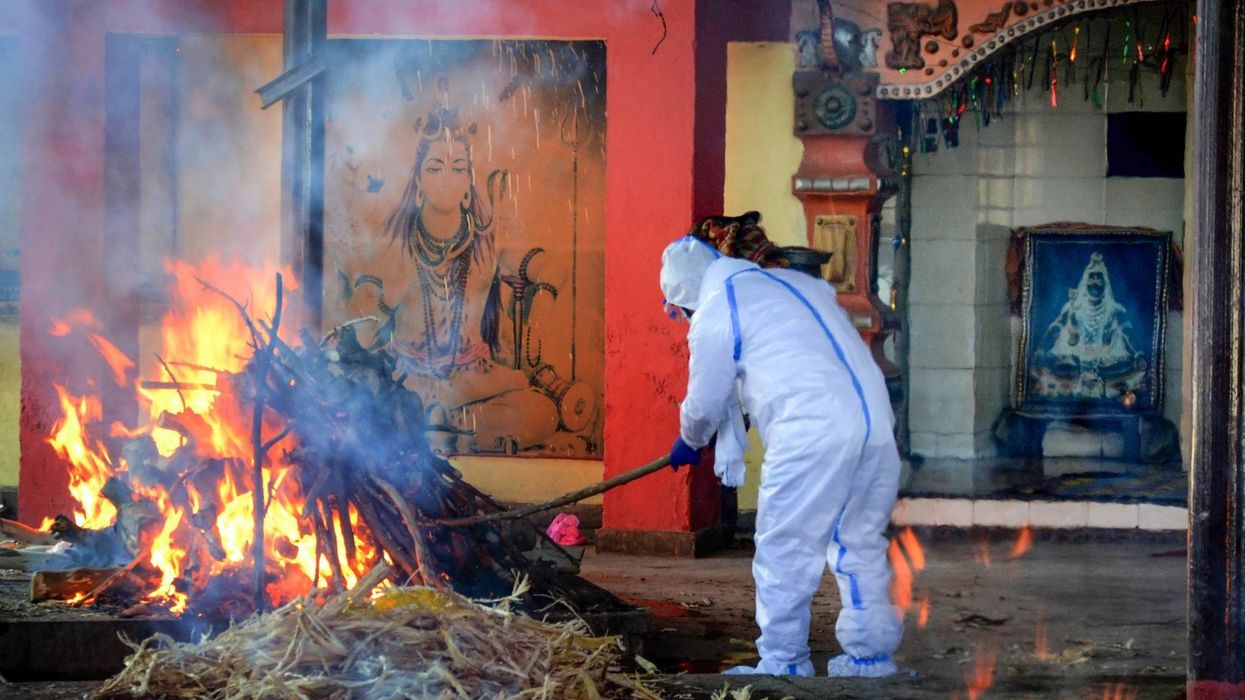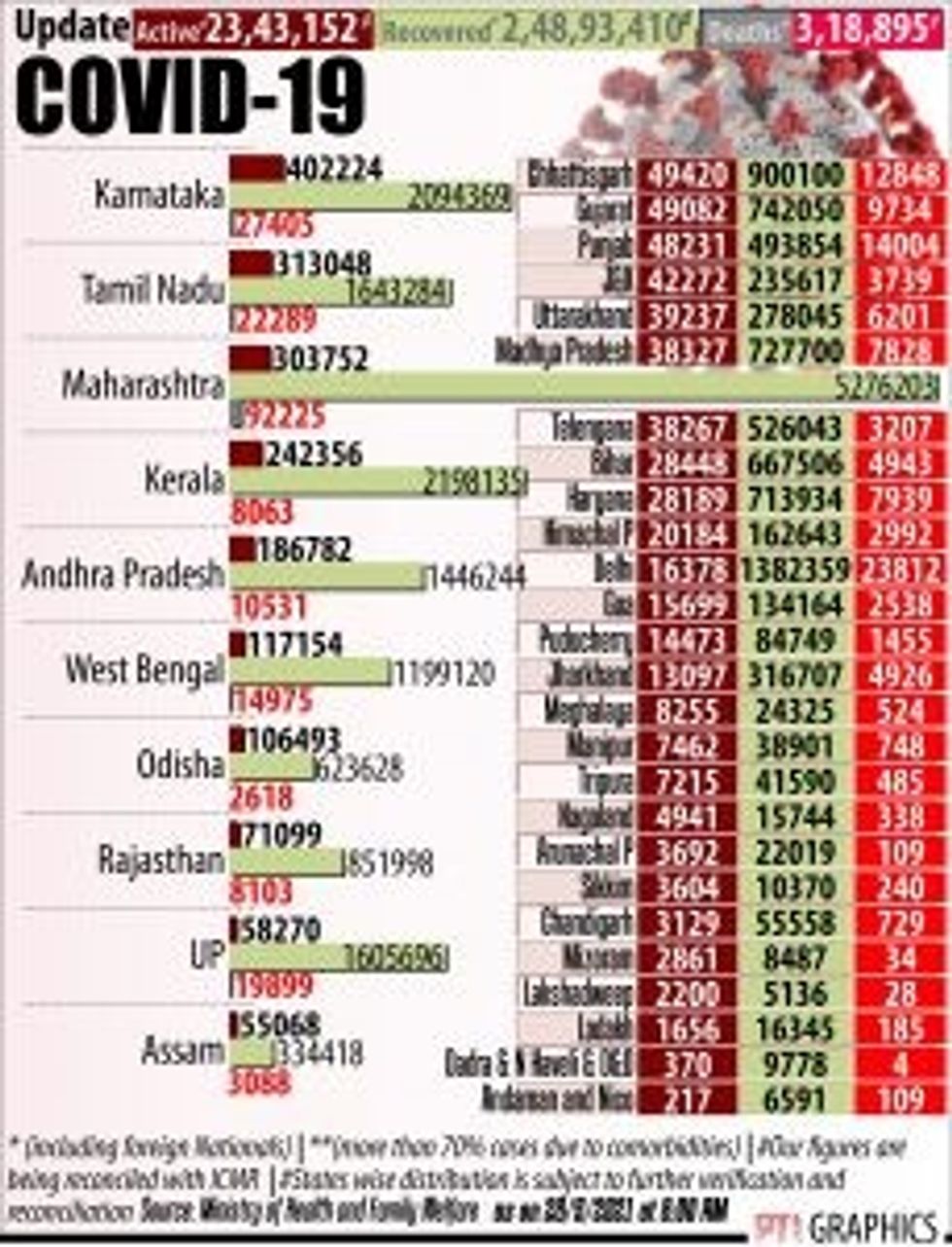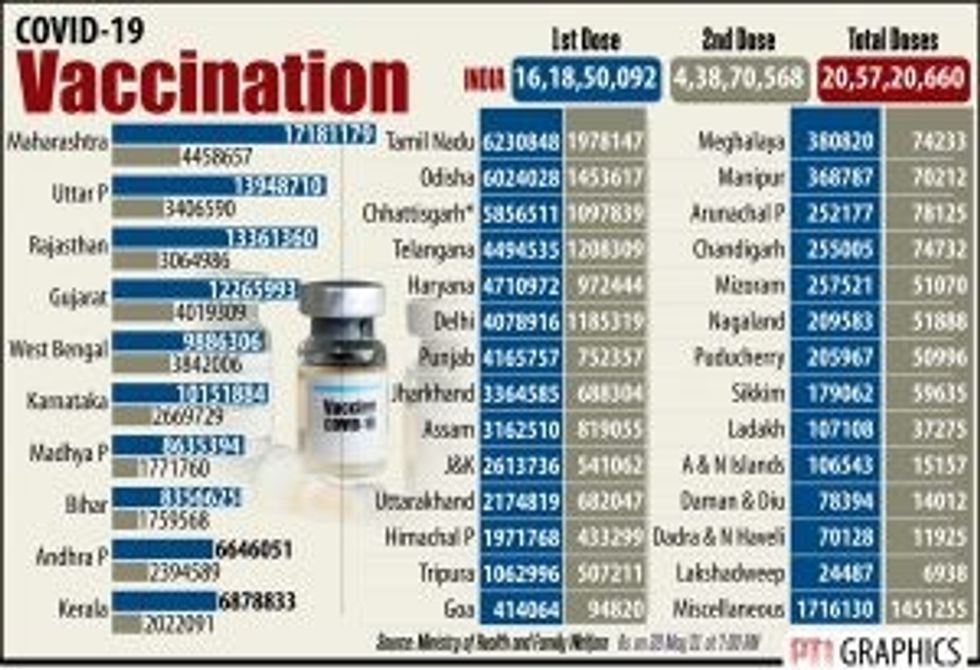THE single day rise in coronavirus infections in India fell below the two-lakh mark for the second time this month.
The total tally of Covid-19 cases in the country has climbed to 2,75,55,457 out of which 2,48,93,410 patients have recuperated, according to the union health ministry data on Friday (28).
A total of 1,86,364 new coronavirus infections were reported today, the lowest in around 44 days, while the death toll climbed to 3,18,895 with 3,660 daily deaths. According to the data, national Covid-19 recovery rate has improved to 90.34 per cent.
Moreover, 20,70,508 Covid-19 tests were conducted on Thursday (27), taking the total cumulative tests conducted so far for in the country to 33,90,39,861.
The daily positivity rate has declined to 9 per cent, as it continued to remain less than 10 per cent for four consecutive days, the ministry said, adding the weekly positivity rate too has further declined to 10.42 per cent.
Recoveries continue to outnumber daily new cases for the 15th consecutive day, however, the case fatality rate has increased to 1.16 per cent, the ministry data stated.
The 3,660 new fatalities include 884 from Maharashtra, 476 from Karnataka, 474 from Tamil Nadu, 187 from Uttar Pradesh, 181 from Kerala, 177 from Punjab, 148 from West Bengal, 117 from Delhi and 104 from Andhra Pradesh.
The ministry also said that cumulatively 20.57 crore number of Covid-19 vaccine doses have been administered in the country.
South Asia crosses 30 million Covid-19 cases
Meanwhile, coronavirus infections in the South Asia region surpassed 30 million on Friday (28), according to a Reuters tally of official data, led by India.
The South Asia region - India, Bangladesh, Pakistan, Bhutan, Nepal, Maldives and Sri Lanka - accounts for 18 per cent of global cases and almost 10 per cent of deaths.
India's federal government has faced criticism for its failure to secure vaccines as only about 3 per cent of India's 1.3 billion population has been fully vaccinated, the lowest rate among the 10 countries with the most cases.
To meet domestic demand, India temporarily halted vaccine exports in March after donating or selling more than 66 million doses. The halt has left countries including Bangladesh, Nepal, Sri Lanka, and many in Africa scrambling for alternate supplies.
Since India is unlikely to resume major exports of Covid-19 vaccines until October, other South Asia countries such as Nepal and Bangladesh are making diplomatic efforts to secure vaccines to prop up their faltering inoculation drives as their stocks run out.
India's western neighbour Pakistan, with purchases and donations from China and allocations from the World Health Organisation and the GAVI Vaccine Alliance, has now secured more than 18 million doses. On Wednesday (27), Pakistan opened its vaccination campaign to everyone aged 19 or older.
At least 219.17 million vaccine doses have been administered in southern Asia by Friday (28), according to figures from Our World in Data.






